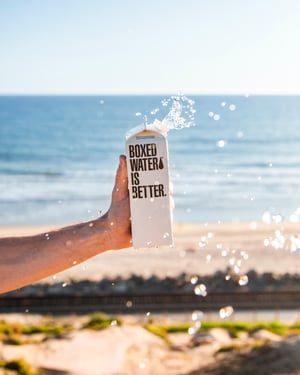Sustainability is one of the hottest topics in the consumer space today, with nearly every major consumer packaged goods (CPG) company tracking and reporting on sustainability initiatives. For instance, Nestle pledges to reduce its carbon footprint and reach net zero by 2050, and Danone’s “One Planet. One Health.” initiative supports carbon neutrality and regenerative agriculture models by 2050, as well as ongoing water stewardship initiatives. Furthermore, global, multi-billion dollar companies like Patagonia and The Honest Company were founded with sustainability missions in their DNA.
But what exactly is sustainability, and what does it mean for brands and consumers?
The cleanest definition of sustainability that we found in our research was “The avoidance of depletion of natural resources in order to maintain an ecological balance.” Examples of ways that CPGs can support sustainability include a pledge to reduce food waste, use less water and electricity, or work with suppliers to create sustainable packaging and shipping strategies. The last point on working with suppliers has had one of the biggest effects on sustainability across the industry. In fact, according to McKinsey & Co., “80% of emissions reside in the supply chain.” As a result, most CPG manufacturers looking to achieve meaningful sustainability goals will likely have to rely on partnerships with suppliers. They can’t do it alone.
Quantifying and certifying sustainability among CPGs is complex in its own right. There are approximately 400 different organizations in charge of monitoring initiatives and certifying sustainability accomplishments. Not having one centralized governing body to quantify specifics around the various sustainability initiatives companies can take has historically taken a toll on organizations. One recent high profile example of this from earlier this year was Elon Musk’s tweet that he didn’t agree with Tesla’s removal from the S&P ESG list and called for the re-evaluatiton of its rankings.
Boost Sustainability Initiatives with Helio
Helio provides CPG brands insights on how consumers view their intersection with sustainability, and what initiatives they should consider enforcing by helping CPGs understand:
1)What trends are consumers seeking out in the brand’s category when it comes to sustainability?
And
2) Who are the emerging brands successfully doing some interesting things in the sustainability space.
Helio tracks over 16 million brand attributes, including 603 for sustainability. Those attributes are categorized into the following groups:
Chemical Free
Clean
Clean/Natural Energy
Cruelty Free
Eco Friendly
Environmental
Fair Trade
Natural
No Harsh Chemicals
Organic
Preservative Free
Sustainable Packaging
Sustainable (all other)
When we overlay brands with sustainability claims and metrics like sales, distribution or social following, we see offline sales (table below) and social following really stand out. Consumers are looking for brands that want to do good in this space, meaning that sustainability is not only the right thing to do, but also it can be profitable as well.
At Helio we track more than 2.5M emerging brands, so we have seen some innovative examples of how to do sustainability while driving brand growth. Brands that have an ingredient, flavor, packaging or claim that falls into the Helio sustainability definitions above, have a median Helio Growth Predictor (HGP) score of 0.54 vs 0.51 of non-sustainable positioned brands meaning these brands are predicted to outpace competition in revenue growth over the next 12 months. Across almost all categories we see sustainable brands have an HGP score above 0.50 which indicates the relevance of sustainability across categories.
Brands that Helio loves doing sustainability in an innovative way include:
Tru Earth | HGP .99
An eco-friendly laundry detergent available in a strip format. https://www.tru.earth/
Sound | HGP .99
Sparkling beverages with no sugar and natural flavors using tea and botanicals. https://drinksound.com/
Joolies | HGP .99
Sustainable from their farming standards to their packaging. https://joolies.com/pages/our-story
While sustainability isn’t easy, our data show that consumers are looking for brands that don’t just do well but do good.
